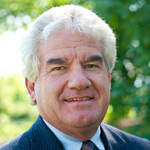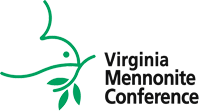
Updating VMC’s understanding of accountability
by Elroy Miller
Conference Moderator
During the summer delegate session at Conference Assembly, I reported on Conference Council’s commitment to become more transparent and accountable in the work of Conference. This means that we’re committed to providing more opportunities for folks in our churches to share their stories about how they are joining the Holy Spirit’s work on behalf of God’s church in our communities.
We are simplifying and reducing the people-time it takes to do the business of Conference in order to free our people to engage mission and vision activities.
We want to involve our delegates more purposefully in the discernment of important issues and in decision-making of policy proposals. We are also in the process of clarifying VMC policy on dealing with the ethical misconduct of church leaders, including outlining the complaint process for those who have been affected by the ethical misconduct of leaders, and how to report the results of investigations of ethical misconduct.
The Faith and Life Commission (FLC) and Conference Council has had a pastoral misconduct policy in place since early 2000. Mennonite Church USA revised its Ministerial Sexual Misconduct Policy and Procedure in November 2016. VMC is now revising its policy document called Navigating Ministerial Complaints (See virginiaconference.org/resources/). Conference districts are studying the draft document and will give their feedback for edits this fall, and then delegates will discern the document in February 2019.
The FLC and Conference Council have been grappling with sticky issues in our review of policy, for example, the definition of “abuse of power.” Most everyone agrees that a leader abuses his/her power when initiating (or agreeing to) inappropriate sexual behavior with a congregant or elsewhere. And we all agree the leaders should not embezzle money from the church.
On the other hand, some are raising the question: are pastors who lead their congregations out of the Conference abusing their power? And is the circumstance different when lay congregational leaders make that request of their pastor?
Another potentially complicated issue is “dual relationships.” Some refer to this as wearing different hats. Pastoral oversight leaders simultaneously are administrative supervisors, pastoral colleagues in faith and life, and consultants/counselors in crisis situations, personal or congregational. Sometimes they grow deep friendships and have family outings.
We all agree that leaders have dual roles or wear different hats, but we may not always agree on which role or hat is the most important or appropriate in a given situation.
For example, in leader misconduct situations, the oversight leader’s supervisory role is the most important, even if the information of misconduct of a church leader was shared to him or her in total confidence. Oversight leaders are required to share breaches of pastoral/leader ethics with the FLC and Executive Conference Minister, and in some cases to VMC officers.
It’s for this reason that we must have an organizational chart, bylaws and job descriptions that reflect who is responsible for what—and who has prescribed authority to act on behalf of the organization in a particular situation. In any event, the FLC and Conference Council are responsible for what occurs within VMC and then to respond in keeping with its policy.
In summary, while we live in challenging times and in a culture of situational ethics, it does not change church leaders’ responsibility to live in keeping with God’s commandments and VMC’s core beliefs and values. May God help us find our way.
